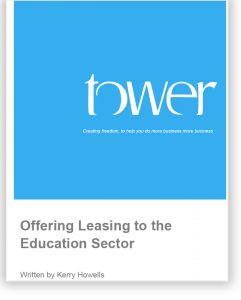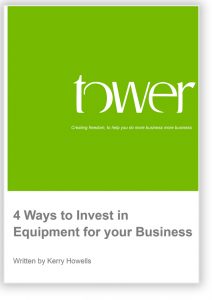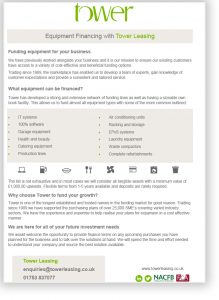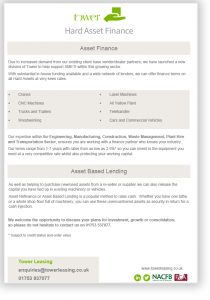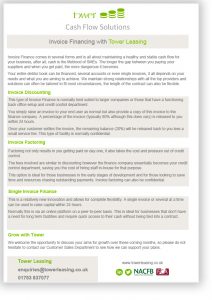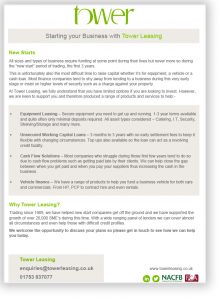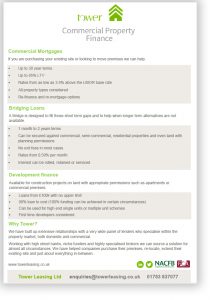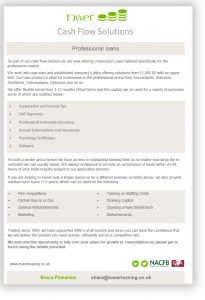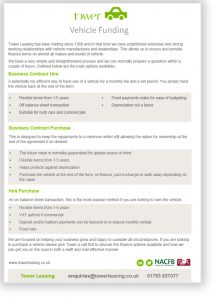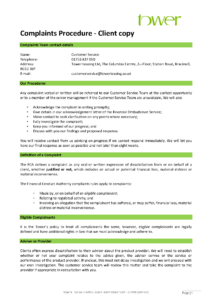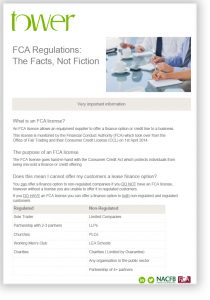Knowledge Hub
Find useful material to support your leasing journey, get to grips with our alternative finance products available and understanding your finance agreement.
 A Guide to Offering Leasing - We… Learn More
A Guide to Offering Leasing - We… Learn More A Guide to Offering Leasing to New Start Companies - Leasing… Learn More
A Guide to Offering Leasing to New Start Companies - Leasing… Learn More How to Offer Leasing the Tower Way - Lorem… Learn More
How to Offer Leasing the Tower Way - Lorem… Learn More Offering Leasing to the Education Sector - Offering… Learn More
Offering Leasing to the Education Sector - Offering… Learn More The Supplier Lease Process - Explain… Learn More
The Supplier Lease Process - Explain… Learn More Tower BUILD - Our… Learn More
Tower BUILD - Our… Learn More
 4 Ways to Invest in Equipment for your Business - What… Learn More
4 Ways to Invest in Equipment for your Business - What… Learn More A Guide to Equipment Leasing - We… Learn More
A Guide to Equipment Leasing - We… Learn More Alternative Finance - Learn More
Alternative Finance - Learn More Business Loans - Secure… Learn More
Business Loans - Secure… Learn More Development Finance and Bridging Loans - Tower… Learn More
Development Finance and Bridging Loans - Tower… Learn More Equipment Financing - Leasing… Learn More
Equipment Financing - Leasing… Learn More Finance for Landlords - Learn More
Finance for Landlords - Learn More Hard Asset Finance - Learn More
Hard Asset Finance - Learn More Invoice Financing - Maintain… Learn More
Invoice Financing - Maintain… Learn More New Start Business - Learn More
New Start Business - Learn More Property Finance - Tailored… Learn More
Property Finance - Tailored… Learn More Technology Finance - Every… Learn More
Technology Finance - Every… Learn More Tower Leasing Cash Flow Solutions- Professional Loans - Our… Learn More
Tower Leasing Cash Flow Solutions- Professional Loans - Our… Learn More Vehicle Funding - Learn More
Vehicle Funding - Learn More
 Complaints Handling Procedure - Download… Learn More
Complaints Handling Procedure - Download… Learn More FCA Regulations – The Facts, Not Fiction - Lorem… Learn More
FCA Regulations – The Facts, Not Fiction - Lorem… Learn More Jargon Buster - Lessee?… Learn More
Jargon Buster - Lessee?… Learn More- Tower Leasing – Asset Finance Statistics - Lorem… Learn More
 Treating Customers Fairly Policy - Learn More
Treating Customers Fairly Policy - Learn More
What is an Lease Rental Agreement?
Your customer gets the best of all worlds. They derive the full benefit of immediate delivery and use of equipment, incredible tax benefits, and the option to upgrade the equipment before the lease agreement comes to an end. All this and none of the depreciation costs associated with cash purchases.
What is an Maintenance Inclusive Agreement?
Not too dissimilar to a lease rental, the benefits of this lease agreement means the customer can include suppliers’ maintenance costs as part of the rental payments and as a consequence, benefit from receiving tax relief on maintenance payments. Allowing them to budget more effectively and enjoy comprehensive rental cover for the full duration of the agreement.
What is an Master Lease Agreement?
This agreement enables customers to add additional equipment needed onto an existing lease agreement. For example, a customer invests in £5K worth of telecoms equipment, over time they need to acquire some additional handsets. The handsets are simply added to the Master Lease Agreement and the cost is spread over the remaining rentals.
What is an Lease Purchase Agreement?
Here your customers also get to acquire the equipment immediately without having to tie up much needed cash in the process. At the beginning of the lease agreement, customers are required to pay the total VAT due on a cash purchase with the first lease rental payment, whilst enjoying the same tax benefits associated with a cash investment. At the end of the agreement they have the option to own the equipment outright.
What is an Operating Lease Agreement?
An operating lease is often associated with high value items with a long life span, at the end of the lease the equipment will still have a value (known as residual value), which can then be sold or leased again. As there is a residual value on the equipment, asking a customer to have a lease for the full value of the equipment would not be cost efficient to them, this is where an operating lease comes into play.
What is an Sale & Leaseback Agreement?
A simple way of injecting cash flow back into a business. Tower simply buys equipment which a company has paid cash for in the last 3 months, paying the business the full invoice amount for the equipment. A lease rental agreement is then set up and that business is able to pay smaller monthly or quarterly rentals for the use of the equipment over a period of time.



